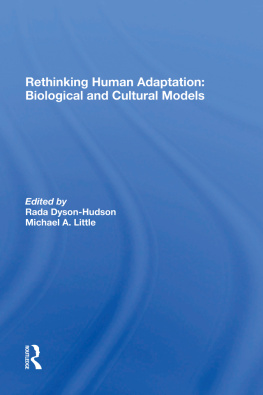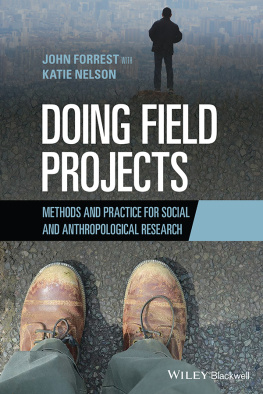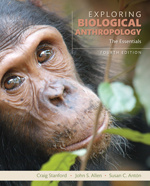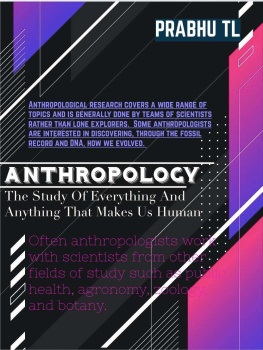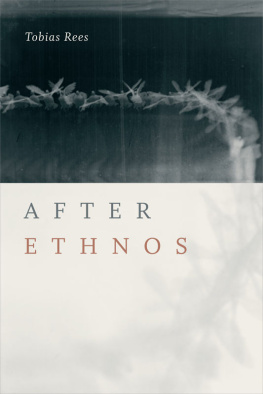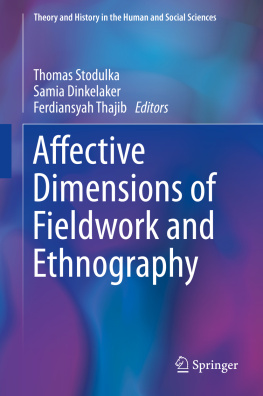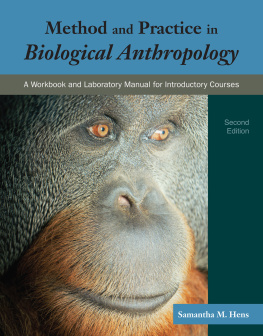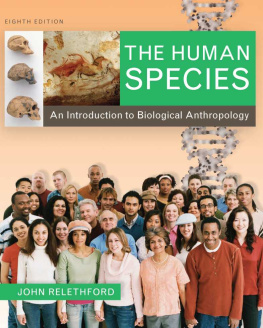Centralizing Fieldwork
Studies of the Biosocial Society
General Editor: Catherine Panter-Brick, Professor of Anthropology, University of Durham
The Biosocial Society is an international academic society engaged in fostering understanding of human biological and social diversity. It draws its membership from a wide range of academic disciplines, particularly those engaged in boundary disciplines at the intersection between the natural and social sciences, such as biocultural anthropology, medical sociology, demography, social medicine, the history of science and bioethics. The aim of this series is to promote interdisciplinary research on how biology and society interact to shape human experience and to serve as advanced texts for undergraduate and postgraduate students.
Volume 1
Race, Ethnicity and Nation: Perspectives from Kinship and Genetics
Edited by Peter Wade
Volume 2
Health, Risk and Adversity
Edited by Catherine Panter-Brick and Agustin Fuentes
Volume 3
Substitute Parents: Biological and Social Perspectives on Alloparenting in Human Societies
Edited by Gillian Bentley and Ruth Mace
Volume 4
Centralizing Fieldwork: Critical Perspectives from Primatology, Biological and Social Anthropology
Edited by Jeremy MacClancy and Agustn Fuentes
Volume 5
Human Diet and Nutrition in Biocultural Perspective: Past Meets Present
Edited by Tina Moffat and Tracy Prowse
Centralizing Fieldwork
Critical Perspectives from Primatology,
Biological and Social Anthropology
Edited by
Jeremy MacClancy and Agustn Fuentes

Published in 2011 by
Berghahn Books
www.berghahnbooks.com
2011 Jeremy MacClancy and Agustn Fuentes
All rights reserved. Except for the quotation of short passages
for the purposes of criticism and review, no part of this book
may be reproduced in any form or by any means, electronic or
mechanical, including photocopying, recording, or any information
storage and retrieval system now known or to be invented,
without written permission of the publisher.
Library of Congress Cataloging-in-Publication Data
Centralizing fieldwork : critical perspectives from primatology, biological, and social anthropology / edited by Jeremy MacClancy and Agustn Fuentes.
p. cm. -- (Studies of the biosocial society)
Includes bibliographical references and index.
ISBN 978-1-84545-690-0 (hardback : alk. paper) -- ISBN 978-1-84545-743-3 (pbk. : alk. paper) 1. Physical anthropology--Fieldwork. 2. Primatology--Fieldwork. 3.
Ethnology--Fieldwork. I. MacClancy, Jeremy. II. Fuentes, Agustin.
GN50.8.C46 2010
599.9--dc22
2010018162
British Library Cataloguing in Publication Data
A catalogue record for this book is available from the British Library
Printed in the United States on acid-free paper.
ISBN: 978-1-84545-690-0 (hardback)
ISBN: 978-1-84545-743-3 (paperback)
Contents
Jeremy MacClancy and Agustn Fuentes
Geoffrey A. Harrison
Volker Sommer
Robert W. Sussman
Phyllis C. Lee
Juichi Yamagiwa
Nobuyuki Kutsukake
Agustn Fuentes
Mark Eggerman and Catherine Panter-Brick
Lyliane Rosetta
Claude Marcel Hladik
Alain Froment
Katherine C. MacKinnon
Alison Jolly
Pamela J. Asquith
Jeremy MacClancy
List of Figures and Tables
Figures
Tables
Acknowledgements
This book arose from a conference held by the Anthropology Centre for Conservation, the Environment and Development (ACCEND) at Oxford Brookes University, 5th to 6th, May 2007. This was the first of a planned series of interdisciplinary, international gatherings, organized by ACCEND, in its efforts to develop a transdisciplinary anthropology project. The gathering was particularly successful, and enjoyed by all. We were unable to include all the papers presented, and we thank the participant in our event whose contribution is not part of this book. We are deeply grateful to our generous supporters: the School of Social Sciences and Law, Oxford Brookes University; the Sasakawa Foundation; the Japan Foundation; the Biosocial Society; the Royal Anthropological Institute; the Institut Franais; University of Notre Dame Institute for Scholarship in the Liberal Arts. We also thank the team at Berghahn Publishers, especially our ever-patient editor, Mark Stanton.
Jeremy MacClancy
Agustn Fuentes
1
Centralizing Fieldwork
Jeremy MacClancy and Agustn Fuentes
Fieldwork is a central method of research throughout anthropology, a much-valued, much-vaunted mode of generating information. It is all the more surprising then, that its nature and process have been seriously understudied in several branches of anthropology. One goal of this book is to ameliorate that imbalance.
Social anthropologists are the exception to this history of neglect. Since the mid-1980s they have made critical scrutiny of their practice a legitimate and revealing topic of study. They have inquired, among other themes, into fieldwork relations and rapport; conflicts, hazards and perils in the field; the continuously negotiated identity of the fieldworker; the blurring of private life and research boundaries; the ethics and the erotics of fieldwork; the status and types of reflexive ethnography; the popularization of the discipline via accounts of fieldwork; and so on (see e.g. MacClancy and McDonaugh 1996; Goulet and Miller 2007; McLean and Leibing 2007; Robben and Sluka 2007). We could make the list longer, but the point is already made. Fledgling research students in social anthropology now go into the field better prepared, because much more knowledgeable about the promise, limits and broad consequences of a panopoly of research methods.
In marked contrast, biological anthropologists and primatologists have appeared more reluctant to investigate the wider dimensions of their own approaches in the field. They have long been ready to teach their research students the upsides and downsides of highly particular methods, especially quantitative ones, but have seemed very disinclined to discuss, publicly, much beyond. For instance, in the influential research manual for biological anthropologists, Practical human biology (Weiner and Lourie 1981), we have been able to find only one page (p. 392) which even begins to consider the effect of local cultural dimensions on field research. It is as though primatologists and biological anthropologists thought strength, or perhaps just rigour, came from narrow focus of vision. A key aim of this book is to stretch that view and, in the process, help establish a broad debate about fieldwork as central to the development of their disciplines. Part of the brief we gave our biological anthropology and primatology contributors was to take a step back and to endeavour to look critically at their own research practice. We wanted them to investigate how much of the broader context of fieldwork is relevant to our understanding and assessment of the resulting academic products, and how much (if anything) should be regarded as mere corridor gossip.
The other, key aim of this book is to further the comparative project within a broadly conceived anthropology. Interdisciplinary work in anthropology is usually justified by reference to evolutionary kinship: what we learn from primatology, biological anthropology, and social anthropology could and should illuminate our rounded understanding of the development, since prehistory, of humans and non-human primates. The trouble here is that while some important cross-disciplinary linkages have been made, the attempt can appear all too often as strained and unconvincing. Experienced anthropologists are only too well aware of just how tricky it is to combine the biological and the social in a revealing and academically persuasive manner. Moreover, in a recent review of the status and future of a broad-based anthropology, the social anthropologists Daniel Segal and Sylvia Yanagisako worry that contemporary calls for four-field holism and biocultural integration are often... thinly disguised attacks on those strands of cultural-social anthropologyspecifically interpretive and constructivist approachesmost visibly in tension with positivism (Segal and Yanagisako 2005: 11). They fear that four-field holists wish to reduce all forms of anthropology into a singular, dominant, scientific paradigm (ibid.: 13). However, this argument poorly represents the kinds of questions we seek to explore here. We seek a real and open dialogue across arenas of anthropological inquiry, here focusing on biological and primatological areas. In North America, where the term holistic rears its head most often, a modern four-field (holistic) approach does not imply an acceptance of any singular dominant paradigm or theoretical approach. Rather, this big tent anthropology is concerned with mutual interaction and discourse across sub-disciplinary and theoretical boundaries in effort to maximize the transdisciplinary potential of anthropological inquiry. Let us be clear: we have no truck with any reductionist programme, however veiled. Instead, the contributors to this book suggest a different, potentially more fertile way to engage these disciplines, one centred around methodology, not theory. Thus the questions we ask are, what in the pursuit of fieldwork is common to all three disciplines? What is unique to each? How much is contingent, how much necessary? In other words, can we generate well-grounded interdisciplinary generalizations about this mutual research method, and are there are any telling differences?
Next page

